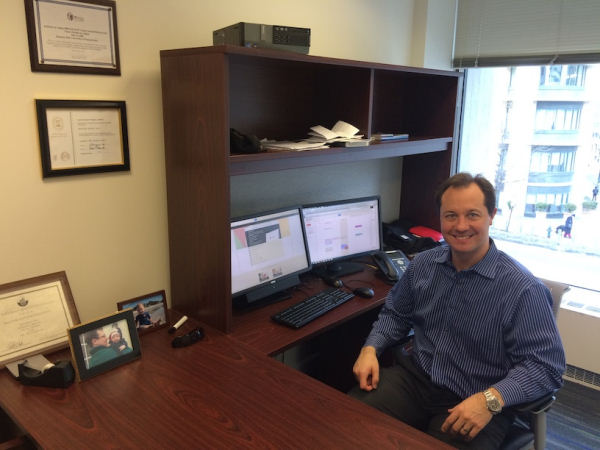
WASHINGTON (July 7, 2016) — Researchers at the George Washington University (GW) created a conceptual model for episodes of acute, unscheduled care – care that can be delivered in a variety of settings from emergency departments to doctors’ offices, from urgent care centers to telemedicine. The model, published in Annals of Emergency Medicine, will help researchers, policymakers, payers, patients, and providers identify and prioritize ways to improve acute care delivery. It was funded through a contract from the Assistant Secretary for Preparedness and Response in the U.S. Department of Health and Human Services.
“Our ultimate goal was to create a model about how and why people get sick and injured in this country, how they seek care, and the outcomes of that care including recovery, death, and importantly, costs. Our model includes many underappreciated factors, including the social and individual determinants of acute care such as violence, poverty, and public health, along with factors that affect care-seeking decisions, and care quality within specific settings,” said Jesse Pines, M.D., M.B.A., primary author of the study and director of the Center for Healthcare Innovation and Policy Research (CHIPR), housed within the GW School of Medicine and Health Sciences.
The model identifies many issues with the current way that people experience acute, unscheduled care in the U.S. when they are sick and injured. Oftentimes, they are plagued with long waiting times, high costs, poor communication between providers, and poor care coordination after their illness. By describing the entire care process, this model helps create better understanding of the complex systems and relationships at play.
“The process of creating this model was truly multi-disciplinary and used both qualitative and quantitative means to understand the situation better. We brought together diverse stakeholders including providers, payers, policymakers, and importantly, patients to make recommendations that will impact policy,” said Gaetano R. Lotrecchiano, Ed.D., Ph.D., a sociologist and team science expert who co-lead the project, a CHIPR senior scholar, and assistant professor of clinical research and leadership at the GW School of Medicine and Health Sciences. “Including these different voices was vital in ensuring that the model reflected everyone’s experience with illness and injury, not just one group. It will make the model more useful for making policy.”
The model also identifies several ways to improve acute care delivery including directly addressing social determinants, improving ways that people make decisions about how, when, and where they seek care, and how care delivery, particularly transitions in care can be improved to optimize outcomes.
“By describing how people get sick and injured in a simple way, this model serves as a jumping off point for comprehensive approaches to improving acute care delivery and outcomes, and hopefully in the end reducing costs of care,” said co-author Mark S. Zocchi, M.P.H., senior research associate of CHIPR.
“A Conceptual Model for Episodes of Acute, Unscheduled Care,” was published in Annals of Emergency Medicine.
###
To learn more about research at the GW Center for Healthcare Innovation and Policy Research, please visit https://smhs.gwu.edu/clinicalinnovation/.
Media: For a copy of the study or to interview Dr. Pines, please contact Lisa Anderson at 202-270-4841 or [email protected].
About the GW School of Medicine and Health Sciences:
Founded in 1824, the GW School of Medicine and Health Sciences (SMHS) was the first medical school in the nation’s capital and is the 11th oldest in the country. Working together in our nation’s capital, with integrity and resolve, the GW SMHS is committed to improving the health and well-being of our local, national and global communities. smhs.gwu.edu
Media Contact
Lisa Anderson
[email protected]
202-270-4841
@GWtweets
http://www.gwu.edu
The post GW researchers create conceptual model for acute, unscheduled care appeared first on Scienmag.





